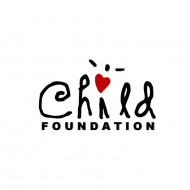We’re in the business of making medical miracles, and our researchers are the miracle workers! In the past 25 years our network has drastically changed the way pediatric IBD is studied, diagnosed, and treated.
The CH.I.L.D. Foundation started the first National Network of IBD Children! For the first time, patients, doctors, and researchers from all over Canada can connect and share information. This is simply groundbreaking, allowing us to study IBD on a large scale and make connections that would otherwise go unnoticed.
CH.I.L.D. Foundation Inflammatory Bowel Disease Network
The Canadian Children Inflammatory Bowel Disease Network: A CH.I.L.D. Foundation Initiative, was started by the CH.I.L.D. Foundation.
It is a comprehensive National network linking in collaborative research efforts with all the major Pediatric IBD centres in Canada.
Network Advisory Committee
The Network Advisory Committee is an advisory body to the Canadian Children IBD Network. The role of the committee is to advise the Network Leadership and the Funders on governance, strategic planning, evaluation metrics and outcomes. It will fulfil this role by advising the Network on research prioritization; the potential for liaison with other international pediatric IBD programs; and, the strategies, structures and processes required to further the Network’s research aims. This committee will advise the Funders on the Network’s progress in meeting its objectives.
Latest from our Network:
Groundbreaking Gut-Ball Treatment:
CH.I.L.D. Foundation funds crucial equipment for ground-breaking research. “We intend to collect intestinal samples from IBD patients who are not responding to current treatments – grow their cells into gut balls, and then test how these intestinal lining cells respond to bacteria and other intestinal challenges, in order to better define why these patients have IBD,” says Dr. Vallance. “We hypothesize that the gut balls grown from IBD patients will be leakier than those coming from non-IBD patients. They may also show exaggerated inflammatory responses to bacteria or food particles. These results will help us to optimize treatments for our IBD patients.” The CH.I.L.D. Foundation Lab at B.C. Children’s Hospital is only the second lab in Canada to adopt this technique – (the other is at SickKids Hospital in Toronto that shared this strategy with Dr. Vallance because of a collaboration initiated through the Canadian Children Inflammatory Bowel Disease Network: A CH.I.L.D. Foundation Initiative). The CH.I.L.D. Foundation has recently provided funds for the acquisition of a microinjector, the use of which will enable researchers to test the effects of new drugs on intestinal cells from individual patients to see if they have beneficial effects (ie. control their disease) prior to administering the drugs directly to the patient. Dr. Vallance believes this technique will ensure improved safety for pediatric patients and will ideally allow clinicians to provide improved personalized medicine for each child, “We anticipate that the system will significantly advance IBD research and treatment in British Columbia.”
Biliary Atresia ‘Colour Cards’
Biliary Atresia is a terrible disease. Manageable if treated, but fatal if not diagnosed extremely quickly after birth. In promoting education and enlightened public policy for Canadian children with Biliary Atresia, a “Colour Card” is now available to all parents of newborns in British Columbia since 2014. Parents can then easily compare their infant’s stool colour to normal and abnormal colours on the card. Abnormal stool colour reflects liver disease, enabling their child to receive prompt medical attention within two months of age.
Before the dissemination of these cards, children with Biliary Atresia were often diagnosed too late. The CH.I.L.D. Foundation is proud of this project, which fostered awareness and prevented many infant deaths.
Find out the latest news with our Network Blog:
- Research Update: Targeting Disease-Causing Bacteria
- CH.I.L.D. Foundation’s Network of Researchers Make Incredible Strides in 2019
- Steroids and Crohn’s: Treatment or Tradeoff?
- ‘Feeling sort of helpless’, The heartbreaking story of a 12 Year Old IBD Patient through her own words
- How was your poop today? Uncomfortable topics and IBD (Inflammatory Bowel Disease)
The Canadian Children IBD network will improve outcomes nationally by standardizing patient assessment, treatment protocols and outcome evaluations and will provide the research infrastructure and collaborative expertise to allow successful exploration of the fundamental determinants of IBD.
Goals
Broadly, the two main goals of the network are:
- To contribute to understanding of what causes IBD
- Better treatments
- Prevention strategies
- To lead in the optimization of treatment for the spectrum of IBD occurring in children
- Predictors of aggressive disease
- More personalized medicine
- Comprehensive assessment of outcomes
We will not rest until we find a cure! Donate today to help fund this life-changing research.
